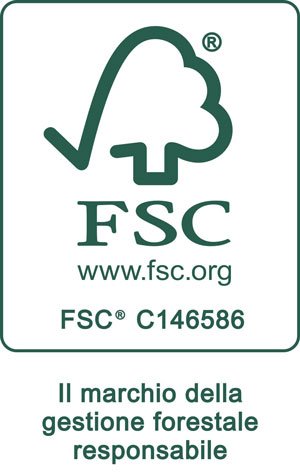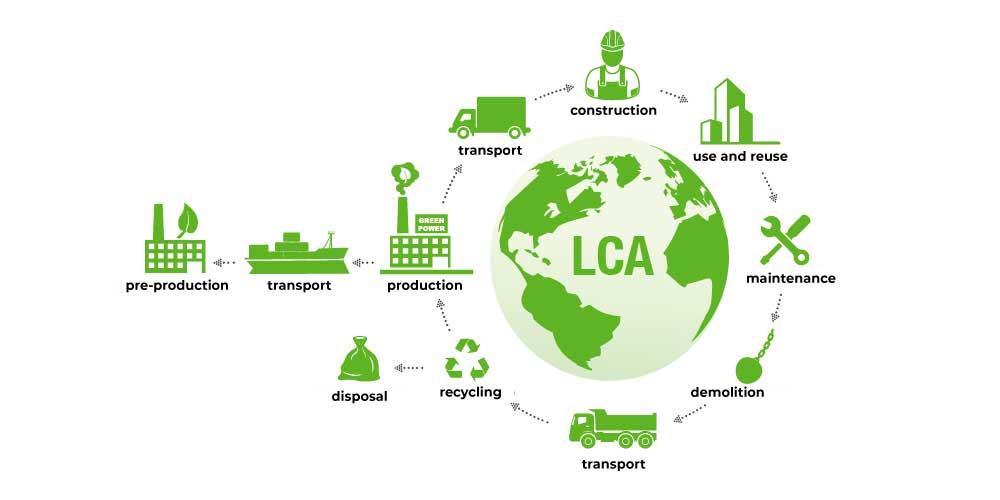
Home / News / Eventi /
Promoted by the World Green Building Council in over 70 countries, the World Green Building Week is one of the most important initiatives dedicated to green building.
The campaign of this year will focus on the Building Life Cycle Assessment, commonly known as building life, with the aim to encourage new practices and ways of thinking to reduce building emissions.
BUILDING LIFE – THE ENVIRONMENTAL IMPACT
Population growth, massive urbanization in recent decades and weak “sustainable culture” have led the buildings life cycle becoming one of the most damaging factors for the environment. According to the data, the construction industry is now responsible for:
- consumption of 40% of global raw materials;
- use of 14% of drinking water;
- 30% waste production;
- consumption 72% of electricity;
- 38% CO2 emission.
Buildings therefore represent one of the main sources of consumption in our society; a sustainable development inevitably passes from a rethinking of the way to build and use them.
To further aggravate this scenario is the Earth Overshoot Day (the day of the over-exploitation of the Earth) which in 2019 was held on July 29, the most earliest date untill now. From this day, humanity has begun to consume more than what the planet is able to reform during the year, burning resources for the future. According to the Global Footprint Network, Italy has reached its Overshoot Day 2019 already on May 15th.
BUILDING LIFE – LCA (Life Cycle Assessment) METHOD
Life cycle analysis (LCA method) is an essential part of a sustainable building; it is a scientific process to measure the carbon footprint and other environmental impacts of a building, from the extraction of materials to demolition to the reuse.
Currently in Italy it is estimated that the construction sector consumes over 30% of primary energy, 93% of which is generated from non-renewable sources. The same sector is considered responsible for around a third of greenhouse gas emissions. In the specific case of constructions, the LCA analysis can be considered an engineering design tool, useful for providing quantitative answers to the following problems:
- selection of materials;
- choice of construction techniques;
- identification of plant solutions;
- management of the end of life of the building
The LCA approach therefore allows to evaluate and quantify for each project the environmental impacts of products throughout their entire life cycle, from the extraction of the raw materials necessary for the production of materials and energy to produce the good up to phase of their final disposal.
The LCA process is one of the hot topics of the World Green Building Week → here the initiatives WGBW 2019
NESITE FOR THE ENVIRONMENT
Nesite, member of Green Building Council Italy,is an eco – friendly company as for the production of its raised floor uses only recycled and recyclable materials, certified by accredited authorities. Choosing Nesite raised floor means selecting a product realized according to criteria of environmental sustainability and with certified materials; therefore, Nesite is able to adequately respond to the requests coming from LEED or BREEAM projects.
 Moreover, Nesite has obtained the FSC® Chain of Custody Certification, which guarantees that its floors made of chipboard core and parquet coverings contribute to safeguarding the precious forest heritage all over the world.
Moreover, Nesite has obtained the FSC® Chain of Custody Certification, which guarantees that its floors made of chipboard core and parquet coverings contribute to safeguarding the precious forest heritage all over the world.
Nesite has contributed to the certification of some prestigious projects such as the Louvre of Abu Dhabi (certified LEED Silver), Banco Popular of Madrid (certified LEED Gold) Christchurch Civic Building in New Zealand (certified Leed Platinum) and the Wilberg Atrium in Norway (certified Breeam Class A).

